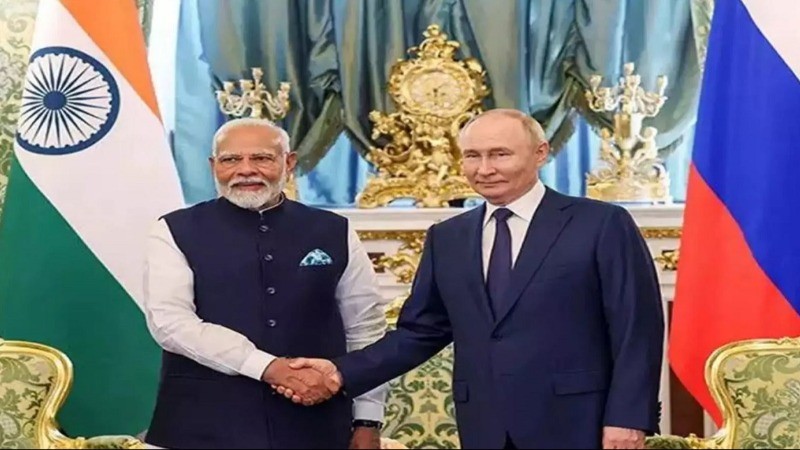
Prime Minister Narendra Modi has extended an invitation to Russian President Vladimir Putin for a visit to India, which is expected to take place in early 2025. The dates for this visit are yet to be finalized, according to Kremlin aide Yury Ushakov.
This visit will mark Putin’s first trip to India since the Russia-Ukraine war began in February 2022. The visit is part of an established framework between India and Russia, where the leaders exchange visits annually.
The announcement of Putin's visit comes shortly after the election of U.S. President Donald Trump, who is also anticipated to visit India next year for the QUAD Summit.
Yury Ushakov confirmed the invitation, saying, “Our leaders have an agreement to meet once a year. We received Modi’s invitation and will certainly consider it positively. We’ll look at tentative dates early next year.”
Earlier, Kremlin press secretary Dmitry Peskov also shared news of Putin's planned visit during a video address at an event in New Delhi. “We welcomed Prime Minister Modi twice this year, and we hope to finalize the dates for President Putin’s visit soon,” Peskov stated.
PM Modi and President Putin maintain regular communication, including frequent phone calls and occasional face-to-face meetings at international events. In July, Modi visited Moscow to attend the 22nd Russia-India summit, while in October, he participated in the BRICS Summit in Kazan.
During his Moscow visit, PM Modi expressed gratitude to President Putin for the hospitality extended during the annual summit and extended an invitation for the 23rd India-Russia Annual Summit in 2025.
Modi also reiterated India’s commitment to supporting peace in the ongoing Russia-Ukraine conflict. “We believe that problems should be resolved peacefully,” said Modi. His visit to Kyiv in August included a meeting with Ukrainian President Volodymyr Zelenskyy, where he encouraged dialogue with Putin to help resolve the crisis.
Additionally, Russia’s First Deputy Prime Minister, Denis Manturov, visited India last month to strengthen bilateral ties. Manturov participated in the Russian-Indian Business Forum in Mumbai, focusing on enhancing economic cooperation, and held key discussions in New Delhi on various global and trade issues.
India has consistently upheld a neutral stance regarding the ongoing Russia-Ukraine conflict, emphasizing diplomacy and peaceful resolution over involvement in the dispute. This approach is rooted in India’s long-standing policy of non-interference and commitment to global peace.
Prime Minister Narendra Modi has repeatedly expressed India’s firm belief in dialogue as the key to resolving international conflicts. During his meeting with Russian President Vladimir Putin earlier this year, Modi underscored India’s commitment to peace, saying, “As I have said earlier, we believe that problems should be resolved peacefully. We fully support the early establishment of peace and stability. All our efforts prioritize humanity. India is ready to offer full cooperation in the times ahead.”
India’s neutral position has been carefully crafted to balance its strategic interests, particularly with both Russia and Ukraine, while maintaining its relationships with key global players like the United States and European Union. By advocating for a peaceful solution, India aims to contribute to international efforts that promote dialogue and ceasefires, without aligning itself with any particular side in the conflict.
India has also consistently called for the importance of humanitarian aid and support for civilians affected by the war. The government has expressed its desire to engage with all parties involved to encourage diplomatic efforts and bring an end to the violence.
India’s neutral approach reflects its broader foreign policy goals, which prioritize regional stability and respect for sovereignty. While advocating for peace, India has also worked to strengthen its relations with both Russia and Ukraine, emphasizing that it remains open to facilitating dialogue and contributing to global efforts for peace.
As the situation in Ukraine continues to evolve, India’s role as a proponent of peaceful diplomacy and stability remains central to its foreign policy. The nation’s commitment to resolving international conflicts through dialogue, cooperation, and humanitarian efforts reflects its larger vision for a peaceful, multipolar world order.